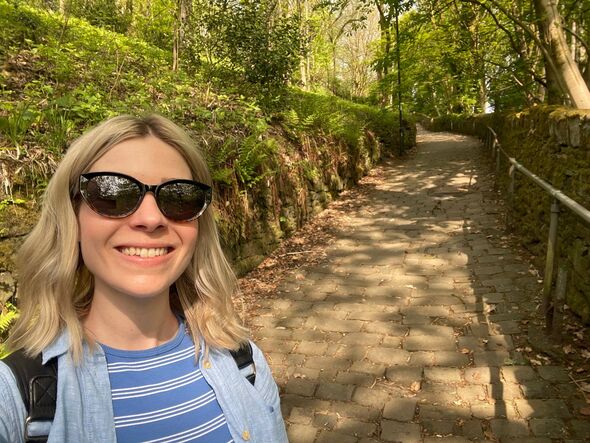

The footpath leading to the quaint village of Heptonstall could be easily overlooked. Marked by a modest signpost reading 'footpath to Heptonstall', the steep cobbled trail is not for the faint-hearted.
A second sign warning 'unsuitable for motors' serves as a prelude to the calf-straining climb that awaits. But during a recent visit to the much-heralded town of Hebden Bridge, I opted to venture along this path, curious to see where it would lead. Fortunately, my curiosity — and my calves — were rewarded handsomely.
The path unveiled a village steeped in history, its beauty seemingly untouched by the passage of time which evoked the feeling of stepping onto a film set.
Heptonstall, older than its valley-dwelling Yorkshire neighbour, traces its roots back to Saxon times and was even mentioned in the Domesday Book survey of 1068. It played host to a battle in 1643 during the early stages of the English Civil War and later emerged as a hub for hand-loom weaving, reports MEN. Quite an impressive resume for a village of approximately 1,340 people.

While Hebden Bridge may get most of the limelight, Heptonstall holds its own charm and boasts a wealth of intriguing features. Upon reaching the village after my strenuous climb, it truly felt like I had stepped into a film set, with scarcely a car or person in sight.
After consulting a map at a small village green, I embarked on my exploration of the village on foot. Climbing the steep slopes of Town Gate, I strolled past rows of gritstone cottages and the quaint village Post Office, with a crate of empty milk bottles basking in the late morning sunshine. The village's two pubs, The White Lion and The Cross Inn, are also located on this road, although both were unfortunately shut during my visit.

Guided by a signpost for the village museum, I veered left down a narrow alley nestled between two terraces. The museum is situated in a Grade-II listed building, originally constructed as a warehouse back in 1600. It was transformed into a grammar school in 1771 and, after shutting its doors in 1889, it served as the Yorkshire Penny Bank until 1954.
In 1972, it was repurposed as a museum. Regrettably, upon my arrival, it was closed. It operates from Thursday to Sunday, 11am to 4.30pm, so perhaps a Tuesday morning was a tad optimistic for visiting a small village museum.

However, this only added to the sense of tranquility in this place. But the true treasure of the village awaited just around the corner: its two churches, one in ruins, the other still very much active, both standing side by side.
While the St Thomas the Apostle Church resembles any typical English village church, mere steps away lie the remnants of the St Thomas a Becket Church.
The structure was ravaged by a storm in 1847, prompting the villagers to erect a new church while leaving the original to decay. Today, its walls, pillars, tower and porch stand as remnants of the past, open for visitors to explore.

Literary enthusiasts might be keen to locate the final resting place of American poet Sylvia Plath, situated in the graveyard extension near the church. She was the wife of poet laureate Ted Hughes, who hailed from the neighbouring town of Mytholmroyd.
Departing from the churches, I walked to Church Street, strolling past a charming line of cottages characterised by large windows, a design element intended to facilitate weaving, a distinctive trait of Heptonstall's architecture.
One of the advantages of Heptonstall's positioning is its proximity to the sprawling countryside. Venturing down Northgate, I stumbled upon a public footpath that guided me to Heptonstall's Methodist Chapel. Established in 1764, it ranks among the world's oldest chapels and remains operational to this day.

As I descended along the path, the village structures gradually gave way to a stunning panorama of the forested valley beneath. After navigating Heptonstall's narrow lanes, it was somewhat unexpected to find myself amidst the expansive countryside once more.
I retraced my steps towards Heptonstall via the footpath, passing the Pinfold Picnic Area en route. Following a dirt trail accompanied by a flock of lively chickens, I discovered another gem before returning to the main thoroughfare: the village lock-up.
Now reduced to a mere small wooden door with a minuscule barred window, a plaque above proclaims: "The dungeon or lock up. In use in the early 19th century". A glance through the window left me half-expecting to spot the village drunk chained to the wall, but nowadays it evidently serves as a storage space. Arguably, that's for the best.
I spent the whole visit feeling like I was in a film. Indeed, you may well recognise Heptonstall from your television screen, having been featured in the BBC's acclaimed series Happy Valley and The Gallows Pole. One thing is certain: I am destined to revisit Heptonstall.